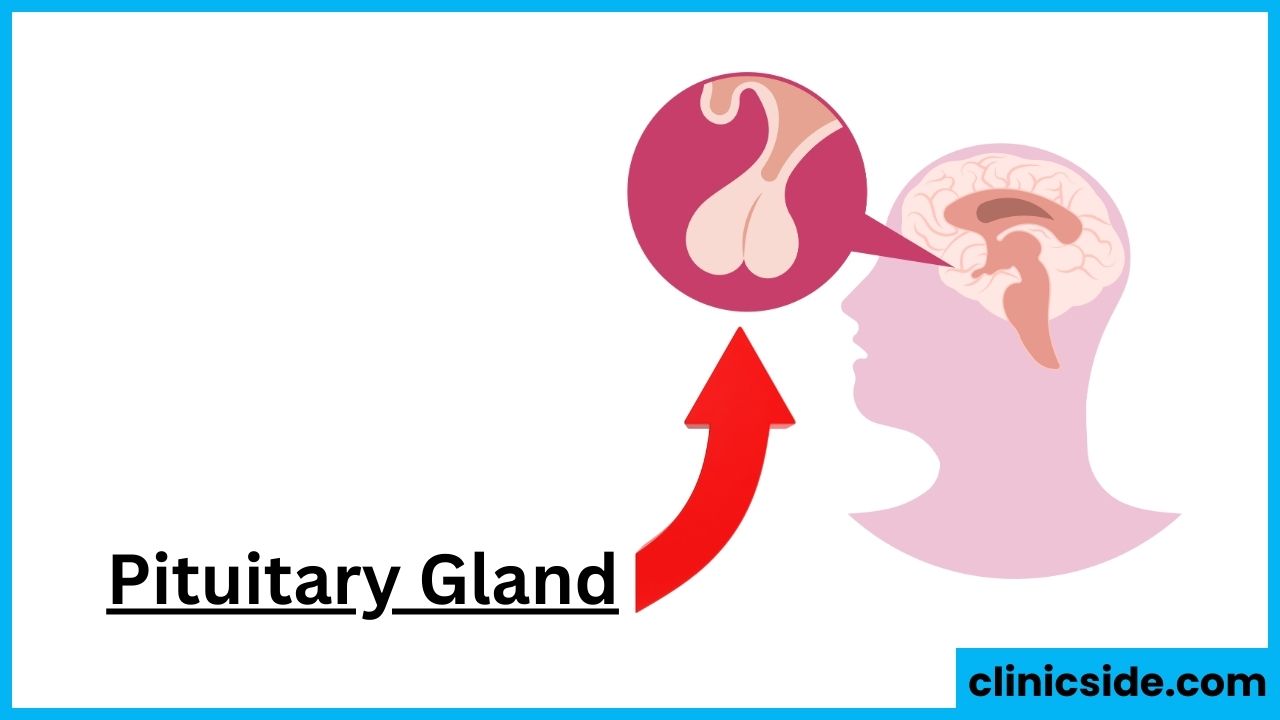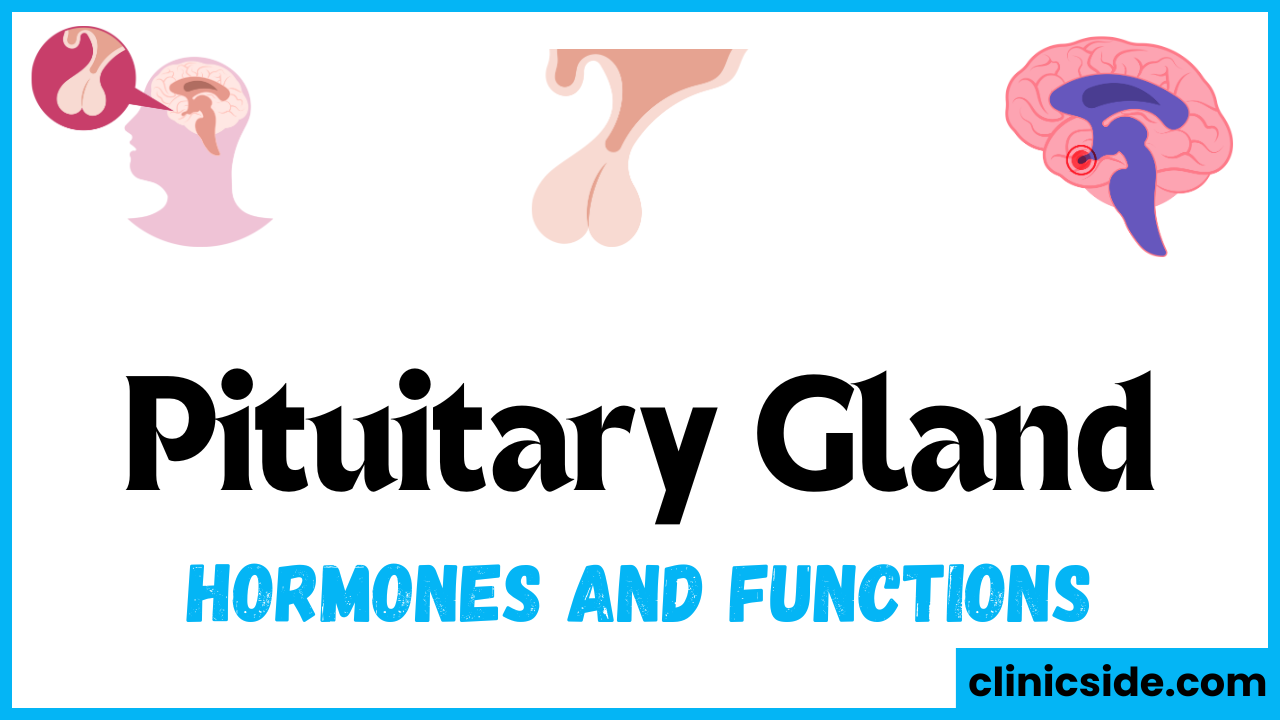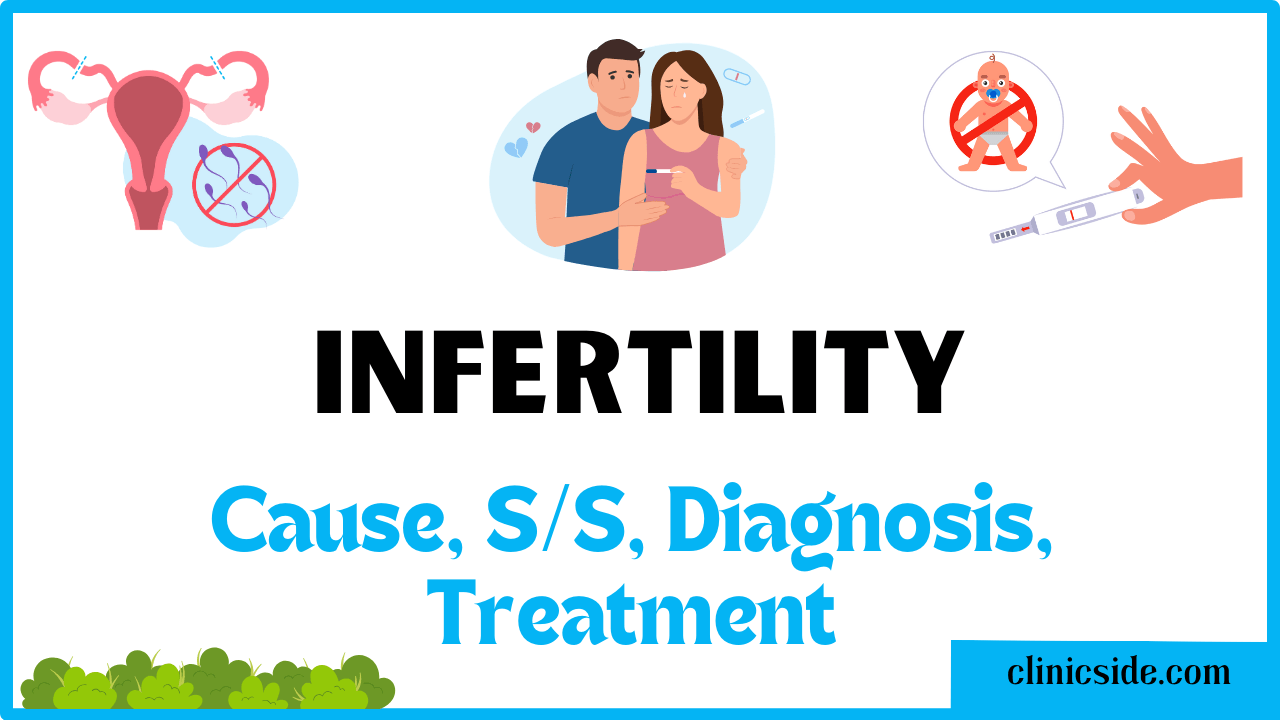The Pituitary Gland: The Master Gland of the Body
The human body is a complex machine, and many parts work together to keep it running smoothly. One of the most important parts is the pituitary gland. Even though it’s small, about the size of a pea, the pituitary gland plays a huge role in controlling many body functions. In this blog post, we’ll learn about what the pituitary gland is, where it’s located, what it does, and why it’s so important for our health.

What is the Pituitary Gland?
The pituitary gland is often called the “master gland” of the body. This is because it controls many other glands that produce hormones, which are chemicals that help different parts of the body communicate with each other. Hormones control things like growth, metabolism (how our bodies use food for energy), and reproduction.
The pituitary gland is part of the endocrine system, which is a group of glands that release hormones into the bloodstream. Even though it’s tiny, the pituitary gland has a big job. It releases several hormones that affect nearly every organ and tissue in the body.
Where is the Pituitary Gland Located?
The pituitary gland is located in the brain, just behind the bridge of your nose and between your ears. It sits in a small bony cavity called the “sella turcica,” which is part of the skull. The gland is attached to a part of the brain called the hypothalamus, which helps control the pituitary gland’s activity.
The hypothalamus sends signals to the pituitary gland to tell it when to release certain hormones. In turn, the pituitary gland sends hormones to other glands, like the thyroid and adrenal glands, to tell them to release their hormones. This process is like a chain reaction that keeps the body in balance.
What Does the Pituitary Gland Do?
The pituitary gland is like the boss of the endocrine system. It produces and releases many different hormones, each with a specific job to do. Let’s take a closer look at some of the key hormones produced by the pituitary gland and what they do in the body.
Growth Hormone (GH)
Growth hormone (GH) is one of the most recognized hormones produced by the pituitary gland. GH is important for normal growth in children and teenagers. It helps the bones and muscles grow, making sure that your body develops properly. Even after you’ve stopped growing taller, GH continues to help maintain your bones and muscles throughout your life.
Thyroid-Stimulating Hormone (TSH)
The pituitary gland also produces thyroid-stimulating hormone (TSH). TSH tells the thyroid gland, which is located in your neck, to make thyroid hormones. These hormones are important for regulating your metabolism. Metabolism is the way your body processes food to generate energy for its various functions. A healthy metabolism helps you stay active and full of energy.
Adrenocorticotropic Hormone (ACTH)
Adrenocorticotropic hormone (ACTH) is another hormone produced by the pituitary gland. ACTH stimulates the adrenal glands, which are located on top of your kidneys, to produce cortisol. Cortisol is commonly known as the ‘stress hormone’ because it plays a key role in helping your body manage stress. It also helps regulate your blood sugar levels and controls your body’s use of fats, proteins, and carbohydrates.
Follicle-Stimulating Hormone (FSH) and Luteinizing Hormone (LH)
The pituitary gland produces two important hormones that control reproductive processes: follicle-stimulating hormone (FSH) and luteinizing hormone (LH).
In women, FSH helps the ovaries produce eggs, while LH triggers ovulation, which is the release of an egg from the ovary. These hormones also help regulate the production of estrogen and progesterone, which are important for maintaining a healthy menstrual cycle.
In men, FSH is important for the production of sperm, and LH helps the testes produce testosterone, which is essential for the development of male characteristics like facial hair and a deeper voice.
Prolactin (PRL)
Prolactin (PRL) is another hormone produced by the pituitary gland. Prolactin’s main role is to help women produce milk after they have a baby. During breastfeeding, prolactin levels increase, ensuring that enough milk is produced to feed the baby. Prolactin also plays a role in regulating the immune system and metabolism.
Oxytocin
Oxytocin is often called the “love hormone” because it plays a big role in social bonding, childbirth, and breastfeeding. During childbirth, oxytocin helps stimulate uterine contractions, which are necessary to deliver the baby. After birth, oxytocin helps with the ejection of milk from the breasts during breastfeeding.
Antidiuretic Hormone (ADH)
Antidiuretic hormone (ADH), also referred to as vasopressin, plays a crucial role in maintaining the body’s water balance. ADH tells the kidneys to hold onto water and reduce the amount of urine produced. This helps keep your body hydrated and maintains the right balance of fluids in your body.
Why is the Pituitary Gland Important?
The pituitary gland is crucial for maintaining balance in the body. If the pituitary gland doesn’t produce the right amount of hormones, it can lead to health problems. For example, if it produces too much growth hormone, it can cause a condition called gigantism, where a person grows too tall. On the other hand, too little growth hormone can lead to dwarfism, where a person is much shorter than average.
If the pituitary gland doesn’t produce enough TSH, it can lead to hypothyroidism, where the thyroid gland doesn’t produce enough thyroid hormones. This can cause symptoms like tiredness, weight gain, and depression.
Since the pituitary gland controls so many different hormones, any problem with it can have a big impact on your health. That’s why doctors often refer to it as the “master gland.





